Analyzing attorneys' strategies in Jason Meade trial -- the high bar for officer convictions
As special prosecutors evaluate whether to retry former Franklin County Sheriff's deputy Jason Meade, they must contend with the reality that juries rarely convict officers for using force — even deadly force.
Meade, who pleaded not guilty to all criminal charges, admitted during a three-week trial that he shot Casey Goodson Jr. on Dec. 4, 2020, resulting in Goodson's deaths.
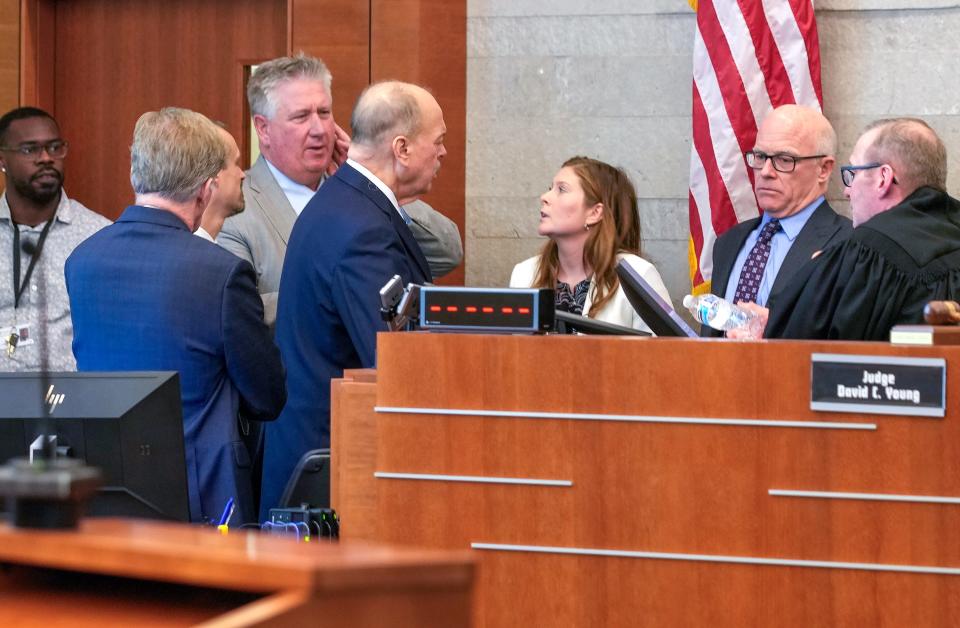
But a Franklin County Common Pleas Court jury had to decide if it was murder, reckless homicide or if Meade was justified given the circumstances. The judge and the law told jurors to consider whether a reasonable officer in Meade's shoes would have fired.
State law and court precedents mean the defense only has to prove by the preponderance of the evidence, or more likely than not, that Meade was justified.
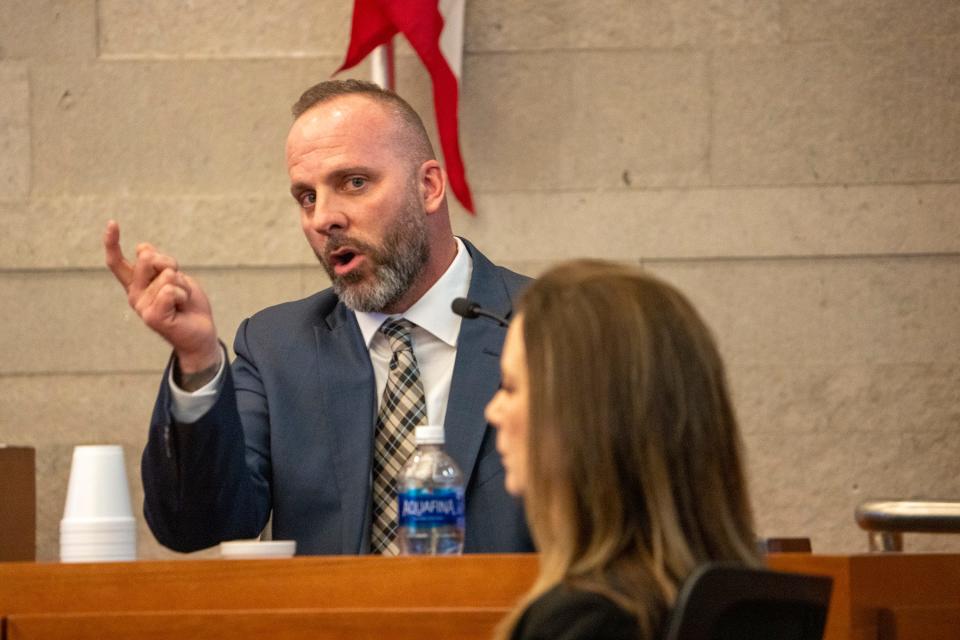
Those court precedents also mean jurors are only allowed to consider Meade's perspective, Robert Barnhart, a Capital University Law School assistant professor, told The Dispatch.
"(The officer is) allowed to be wrong and make a reasonable mistake. You can be completely wrong about a threat somebody poses to you and use force," Barnhart said. "And I think jurors are more likely to believe police just in general. So I think it's really difficult (to prosecute a law enforcement officer). How many successful ones have we seen? Not a lot."
The Meade case hinged on whether jurors believed the officer, who also is the only living eyewitness to the shooting, said Mark R. Weaver, an attorney who has served as a special prosecutor in a dozen counties around the state.
Even the prosecution's expert witness testified that if Goodson pointed a gun at Meade at the side door, as Meade alleges, Meade was justified in shooting.
One Ohio prosecutor's opinion: There'd be no justice in retrying Jason Meade.
In the end, jurors could not reach a unanimous decision on the three charges — two counts of murder and one count of reckless homicide — and the judge declared a mistrial on Feb. 16.
Sean Walton, an attorney representing Tamala Payne, Goodson's mother, said after the mistrial that at least some jurors wanted to convict Meade of something.
Tim Merkle and Gary Shroyer, special prosecutors appointed by Franklin County Prosecutor Gary Tyack to handle the case, must decide whether to proceed with another trial of Meade on those charges. In an emailed statement, they said:
"We are assessing our options and will have no further comment until that process is completed."
A status conference on the case has been scheduled for June 6.
Indictments of officers historically rare in Franklin County
In the past, Franklin County grand juries rarely handed up charges against officers accused of crimes in the line of duty.
It's only in the past decade that a spotlight on high-profile police killings — many involving Black Americans like Tamir Rice in 2014, Philando Castile in 2016, and Breonna Taylor and George Floyd Jr. in 2020 — that prosecutors began seeking charges against officers.
This increased public scrutiny of all law enforcement officers and pressure from voters on established prosecutors, elected leaders and political candidates meant increased pressure to bring indictments, Mark Collins, Meade's lead defense attorney, told The Dispatch in a sit-down interview last year.
Collins has become a specialist in the nuances of court precedents around policing, so he has been the go-to for Columbus-area police officers facing criminal charges for decades. That used to involve mostly misdemeanors and never murder charges, he said.
Things changed in 2019, when a Franklin County grand jury charged former Columbus police vice officer Andrew Mitchell in the 2018 shooting of Donna Castleberry. It was the first time a law enforcement officer in the county had been indicted an officer on a murder charge in at least several decades.
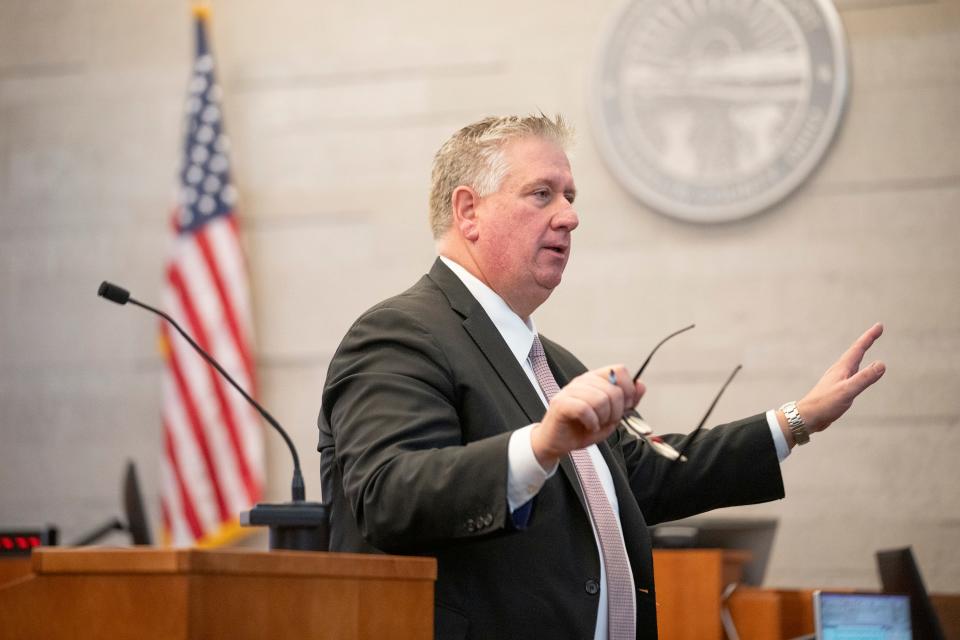
Since 2019, Franklin County grand juries have indicted three more officers besides Mitchell on murder charges: Meade, Adam Coy and Ricky Anderson.
To date, only one case has gone to trial and been resolved.
In Mitchell's first trial, the jury hung. A second jury found him not guilty last year.
Coy and Anderson, both former Columbus police officers, are awaiting trial. Coy is charged in the shooting death of unarmed Andre Hill on Dec. 22, 2020 — less than three weeks after Goodson was killed. Columbus paid a $10-million settlement to Hill's family in May 2021 to avoid a civil trial in that case, the largest settlement in city history.
Anderson is charged with shooting Donovan Lewis early in the morning of Aug. 30, 2022, while serving a warrant for Lewis' arrest.
Collins and his partner, Kaitlyn Stephens, represent Meade, Mitchell, Coy, and Anderson.
Steve Nolder, a former federal public defender for the U.S. Southern District of Ohio, rounds out Meade's defense team. It's an impressive team of attorneys on Meade's side, Weaver said.
Court precedent: Why the law favors officers
The defense team repeatedly referenced three major court precedents on policing throughout the trial: two different U.S. Supreme Court decisions and one Ohio Supreme Court decision.
Kevin Davis, a former Akron police officer who has testified as an expert in use-of-force cases around the country, testified for the defense about the precedents these cases set and how that translates to police training.
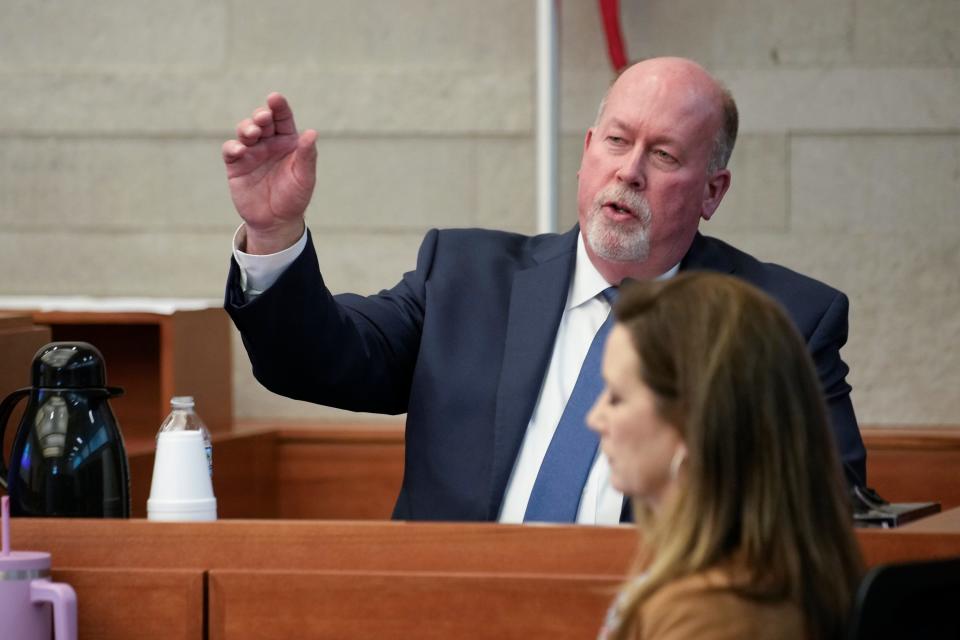
Davis said only what the officer knew at the time can be used when evaluating an officer's use of force. Hindsight can't be used, he said.
Of the three court decisions, Davis spent the most time discussing the objective reasonableness standard set by the U.S. Supreme Court in its 1989 decision in Graham v. Connor.
In that case, the court outlined a checklist of possible justifications for using force:
The severity of the crime
Whether the suspect poses an immediate threat to officers or others
Whether the suspect is actively resisting arrest
Whether the suspect is attempting to flee
In his opinion, Davis said Meade acted like a reasonable officer would after Goodson pointed a gun and appeared to be fleeing.
Questions show jury in Meade trial confused
The jurors were not convinced either way when they began deliberations in Meade's case, as evidenced by the questions they sent to the judge.
They asked in a note, hypothetically, if they could return a verdict on one count while remaining deadlocked and unable to reach a verdict on another.
Then, they asked if they could find the defendant justified on one count but not the other two. The judge told them that if they found Meade was justified, it applied to each count.
All four alternate jurors used after long trial
The long trial may have hurt the prosecution as a tough task for the jury was made more difficult when jurors had to leave mid-trial.
In most trials, only two alternate jurors are picked, but four alternates were selected for this trial. In the end, all four alternates were utilized. Three times after deliberations began, the jury had to begin anew when the judge dismissed a juror and an alternate was called up.
Judges do not have to disclose in open court why jurors are dismissed. Common Pleas Court Judge David Young did not say why jurors were dismissed in this case, but some jurors could have had scheduling conflicts or other issues. During jury selection, special prosecutors told potential jurors the trial would last two weeks, but it went into a third week.
Over three weeks, eight days of which were spent in the trial, jurors heard from more than 20 witnesses.
The trial went into a third week, in part, because the prosecution called a last-minute witness. That delayed the trial by three days to put on witnesses to testify about facts the defense was already willing to admit.
Barnhart called it a "leave-it-all-out-on-the-field approach."
After the prosecution put Caleb Worley, a forensic firearms analyst with the Columbus Division of Police, on the stand for almost an hour, Stephens pointed out during her less than two-minute cross-examination how long Worley's testimony took.
"During those 55 minutes, you can sum up your testimony to say that the six casings that were recovered at the scene and the five spent bullets that were also recovered at the scene came from (Meade's) Daniel Defense rifle, right?" Stephens said.
"Correct," Worley said.
The most frequent complaint from jurors after a trial is attorneys wasting their time, Weaver said, but whether that affects their verdict is hard to tell.
"Sometimes I add witnesses to my case because I want it to feel like it has a heftier feel," Weaver said.
Considering Casey Goodson Jr.'s perspective
Meade's defense team repeatedly told jurors they can only consider the officer's perspective.
That didn't stop the special prosecutors from bringing up Goodson's perspective or seemingly playing on jurors' sympathies at times.
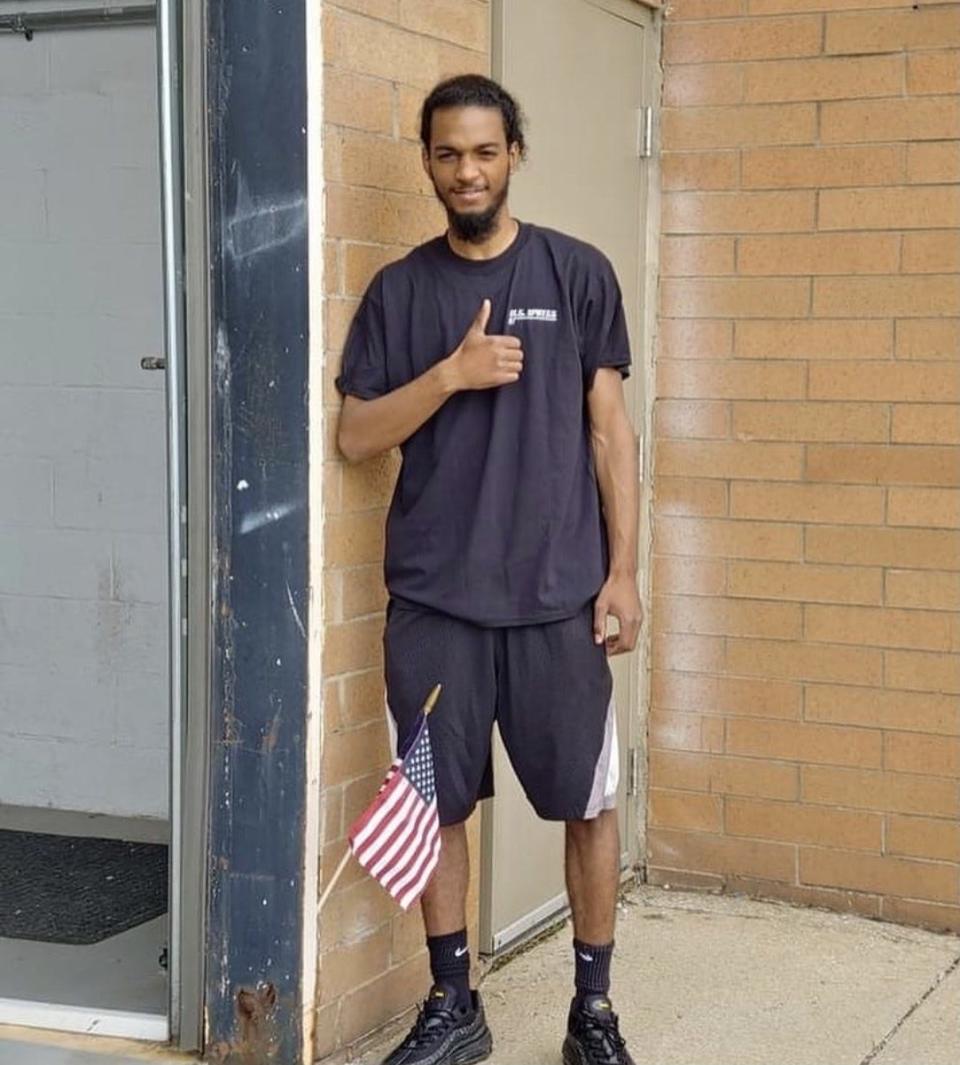
In a dramatic moment at the end of the trial, Gary Shroyer, one of the special prosecutors, told jurors during closing arguments, "Ask yourself what was Casey's big plan?"
Collins stood and shouted his objection, which Young sustained, striking Shroyer's comment from the record.
Barnhart said he thought what Shroyer said was fair game because jurors have to determine whether Meade's description of events makes sense.
Collins and the defense team were very successful at framing this case solely from Meade's perspective, Barnhart said.
jlaird@dispatch.com
@LairdWrites
This article originally appeared on The Columbus Dispatch: Post-Jason Meade trial analysis: officer convictions rare

